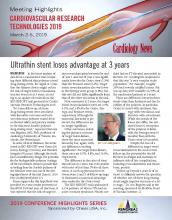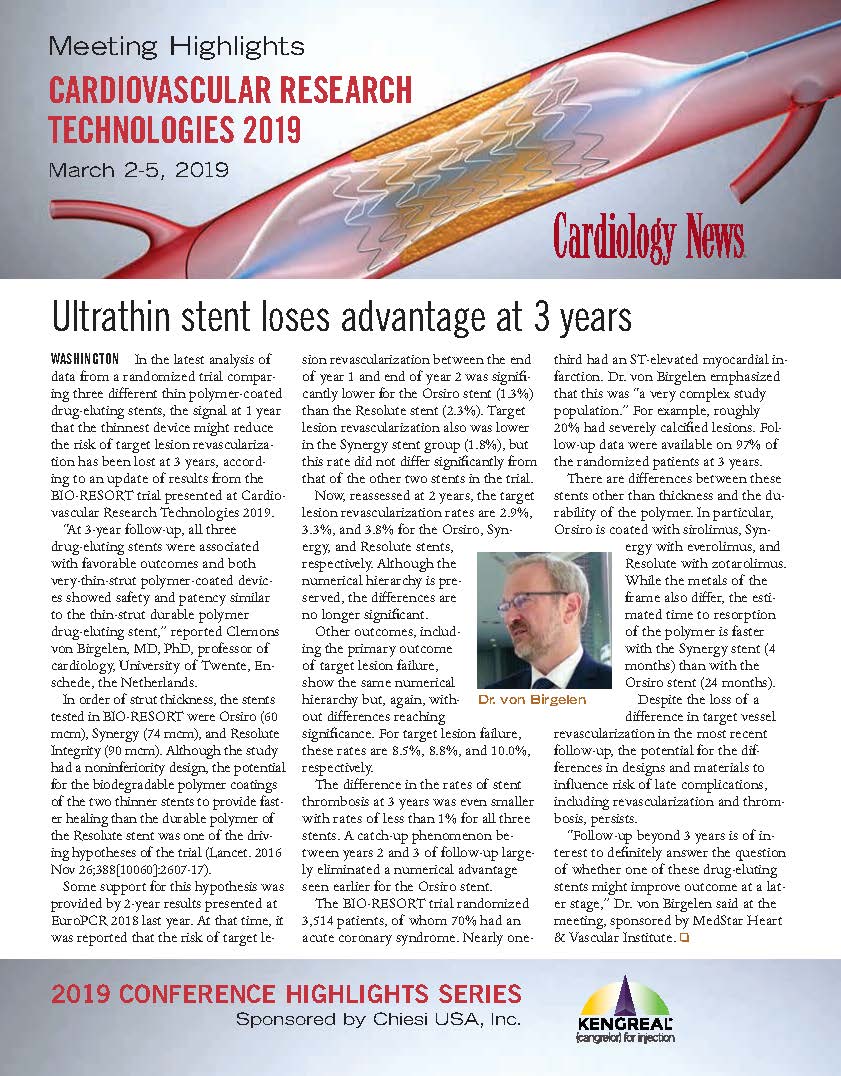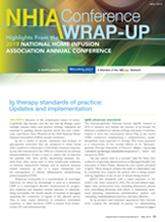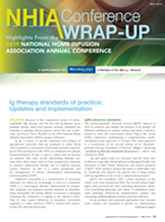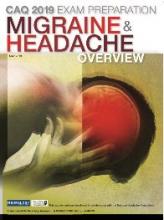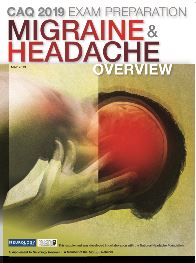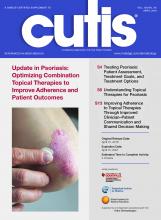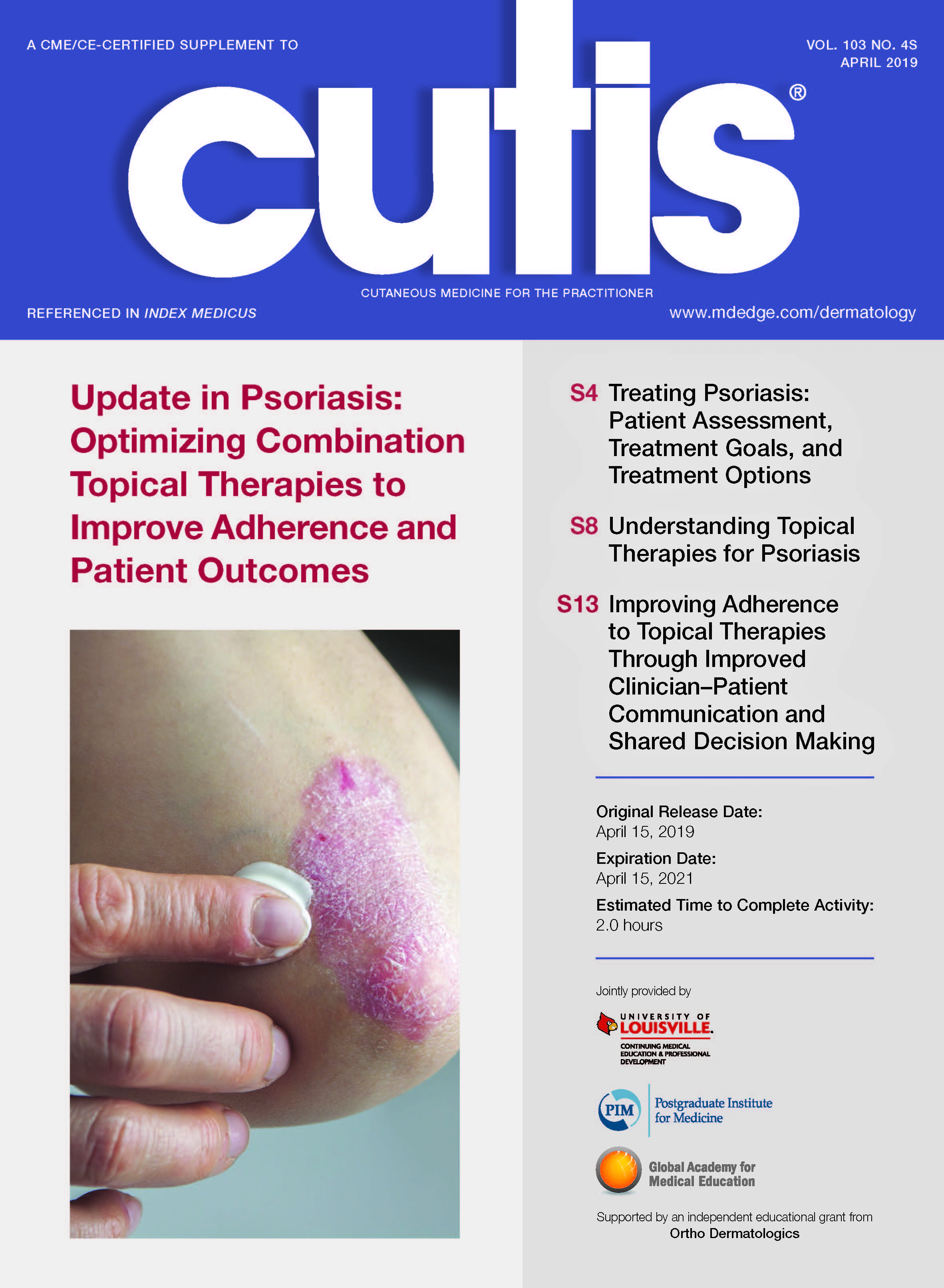User login
Practical advice for colorectal cancer screening

Douglas K. Rex, MD, AGAF, MACP, MACG, FASGE; offers advice and insight for colorectal cancer screening, highlighting:
- Clinically relevant facts about the spectrum of precancerous lesions that can be targeted during screening;
- Key practical aspects of the 3 screening tests that receive significant use in the United States.
- Why some tests are used more than others
Click HERE to read the supplement

Douglas K. Rex, MD, AGAF, MACP, MACG, FASGE; offers advice and insight for colorectal cancer screening, highlighting:
- Clinically relevant facts about the spectrum of precancerous lesions that can be targeted during screening;
- Key practical aspects of the 3 screening tests that receive significant use in the United States.
- Why some tests are used more than others
Click HERE to read the supplement

Douglas K. Rex, MD, AGAF, MACP, MACG, FASGE; offers advice and insight for colorectal cancer screening, highlighting:
- Clinically relevant facts about the spectrum of precancerous lesions that can be targeted during screening;
- Key practical aspects of the 3 screening tests that receive significant use in the United States.
- Why some tests are used more than others
Click HERE to read the supplement
Impetigo: Addressing Treatment Challenges and Burden of Disease
Over the past few decades there has been a shift in the bacteriology and resistance patterns associated with impetigo, making it difficult to identify the best treatment choice for this common bacterial skin infection. In this supplement to Dermatology News, Adelaide A. Hebert, MD and Linda F. Stein Gold, MD, review the current impetigo treatment landscape and the growing concern over methicillin-resistant S. aureus (MRSA).
Over the past few decades there has been a shift in the bacteriology and resistance patterns associated with impetigo, making it difficult to identify the best treatment choice for this common bacterial skin infection. In this supplement to Dermatology News, Adelaide A. Hebert, MD and Linda F. Stein Gold, MD, review the current impetigo treatment landscape and the growing concern over methicillin-resistant S. aureus (MRSA).
Over the past few decades there has been a shift in the bacteriology and resistance patterns associated with impetigo, making it difficult to identify the best treatment choice for this common bacterial skin infection. In this supplement to Dermatology News, Adelaide A. Hebert, MD and Linda F. Stein Gold, MD, review the current impetigo treatment landscape and the growing concern over methicillin-resistant S. aureus (MRSA).
Practical advice for colorectal cancer screening
Douglas K. Rex, MD, AGAF, MACP, MACG, FASGE; offers advice and insight for colorectal cancer screening, highlighting:
- Clinically relevant facts about the spectrum of precancerous lesions that can be targeted during screening;
- Key practical aspects of the 3 screening tests that receive significant use in the United States.
- Why some tests are used more than others
Click HERE to read the supplement
Douglas K. Rex, MD, AGAF, MACP, MACG, FASGE; offers advice and insight for colorectal cancer screening, highlighting:
- Clinically relevant facts about the spectrum of precancerous lesions that can be targeted during screening;
- Key practical aspects of the 3 screening tests that receive significant use in the United States.
- Why some tests are used more than others
Click HERE to read the supplement
Douglas K. Rex, MD, AGAF, MACP, MACG, FASGE; offers advice and insight for colorectal cancer screening, highlighting:
- Clinically relevant facts about the spectrum of precancerous lesions that can be targeted during screening;
- Key practical aspects of the 3 screening tests that receive significant use in the United States.
- Why some tests are used more than others
Click HERE to read the supplement
Meeting Highlights: Cardiovascular Research Technologies 2019
A supplement to Cardiology News. This supplement was sponsored by Chiesi USA, Inc.
News included in the supplement:
- Ultrathin stent loses advantage at 3 years
- Adjunctive devices for TAVR boost outcomes
- MI alert device shows predictive value
- Readmissions high post STEMI with cardiogenic shock
- Endovascular device sustains BP reductions
- Alcohol renal denervation safe for BP reduction
A supplement to Cardiology News. This supplement was sponsored by Chiesi USA, Inc.
News included in the supplement:
- Ultrathin stent loses advantage at 3 years
- Adjunctive devices for TAVR boost outcomes
- MI alert device shows predictive value
- Readmissions high post STEMI with cardiogenic shock
- Endovascular device sustains BP reductions
- Alcohol renal denervation safe for BP reduction
A supplement to Cardiology News. This supplement was sponsored by Chiesi USA, Inc.
News included in the supplement:
- Ultrathin stent loses advantage at 3 years
- Adjunctive devices for TAVR boost outcomes
- MI alert device shows predictive value
- Readmissions high post STEMI with cardiogenic shock
- Endovascular device sustains BP reductions
- Alcohol renal denervation safe for BP reduction
NHIA Conference Wrap-Up
This supplement to Neurology Reviews compiles news briefs from the 2019 National Home Infusion Association annual meeting, which was held in March in Orlando, Florida.
Click here to read the supplement.
This supplement to Neurology Reviews compiles news briefs from the 2019 National Home Infusion Association annual meeting, which was held in March in Orlando, Florida.
Click here to read the supplement.
This supplement to Neurology Reviews compiles news briefs from the 2019 National Home Infusion Association annual meeting, which was held in March in Orlando, Florida.
Click here to read the supplement.
2019 CAQ Exam Preparation: Migraine & Headache Overview
The National Headache Foundation is offering a Certificate in Added Qualification (CAQ) exam in Headache Medicine from September 16 through October 1, 2019. In preparation for the CAQ, this supplement to Neurology Reviews walks readers through pertinent topics in migraine and headache that will be covered in the exam.
Benefits of completing the CAQ exam include:
- Validation of a level in expertise in headache medicine
- Possibility of more patient referrals
- Enhanced credibility and satisfaction of providing your patients with the best possible care
- Recognition of skills when dealing with managed care and government agencies
Click here to read the supplement and learn more about CAQ exam enrollment.
The National Headache Foundation is offering a Certificate in Added Qualification (CAQ) exam in Headache Medicine from September 16 through October 1, 2019. In preparation for the CAQ, this supplement to Neurology Reviews walks readers through pertinent topics in migraine and headache that will be covered in the exam.
Benefits of completing the CAQ exam include:
- Validation of a level in expertise in headache medicine
- Possibility of more patient referrals
- Enhanced credibility and satisfaction of providing your patients with the best possible care
- Recognition of skills when dealing with managed care and government agencies
Click here to read the supplement and learn more about CAQ exam enrollment.
The National Headache Foundation is offering a Certificate in Added Qualification (CAQ) exam in Headache Medicine from September 16 through October 1, 2019. In preparation for the CAQ, this supplement to Neurology Reviews walks readers through pertinent topics in migraine and headache that will be covered in the exam.
Benefits of completing the CAQ exam include:
- Validation of a level in expertise in headache medicine
- Possibility of more patient referrals
- Enhanced credibility and satisfaction of providing your patients with the best possible care
- Recognition of skills when dealing with managed care and government agencies
Click here to read the supplement and learn more about CAQ exam enrollment.
Update in Psoriasis: Optimizing Combination Topical Therapies to Improve Adherence and Patient Outcomes
Click here to download this supplement.
A majority of patients with psoriasis are undertreated. In recent years, however, new formulations of topical medications for psoriasis have been introduced, with the goal of enhancing penetration, efficacy, and patient acceptance. Along with new systemic therapies, these treatments allow for more aggressive goals for disease clearance.
Topical medications can be used as monotherapy but combining topical agents can increase efficacy and may allow for use of lower doses with fewer adverse events. Fixed-dose combination treatments combine active ingredients in one vehicle and may improve patient adherence and acceptance by simplifying the treatment regimen.
This supplement provides physicians with education on evidence-based assessment and management of psoriasis, the combination of systemic and topical medications, and strategies for improving patient adherence to treatment regimens.
Click here to download this supplement.
Click here to download this supplement.
A majority of patients with psoriasis are undertreated. In recent years, however, new formulations of topical medications for psoriasis have been introduced, with the goal of enhancing penetration, efficacy, and patient acceptance. Along with new systemic therapies, these treatments allow for more aggressive goals for disease clearance.
Topical medications can be used as monotherapy but combining topical agents can increase efficacy and may allow for use of lower doses with fewer adverse events. Fixed-dose combination treatments combine active ingredients in one vehicle and may improve patient adherence and acceptance by simplifying the treatment regimen.
This supplement provides physicians with education on evidence-based assessment and management of psoriasis, the combination of systemic and topical medications, and strategies for improving patient adherence to treatment regimens.
Click here to download this supplement.
Click here to download this supplement.
A majority of patients with psoriasis are undertreated. In recent years, however, new formulations of topical medications for psoriasis have been introduced, with the goal of enhancing penetration, efficacy, and patient acceptance. Along with new systemic therapies, these treatments allow for more aggressive goals for disease clearance.
Topical medications can be used as monotherapy but combining topical agents can increase efficacy and may allow for use of lower doses with fewer adverse events. Fixed-dose combination treatments combine active ingredients in one vehicle and may improve patient adherence and acceptance by simplifying the treatment regimen.
This supplement provides physicians with education on evidence-based assessment and management of psoriasis, the combination of systemic and topical medications, and strategies for improving patient adherence to treatment regimens.
Click here to download this supplement.




